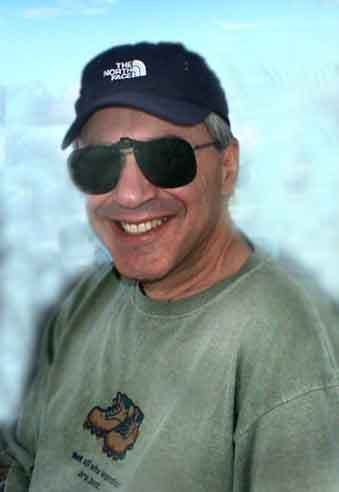My friend and mentor, John Browning, is like a dust mop that picks up knowledge where ever he finds it. In addition to being a L4 instructor, he is an instructor trainer, and EMT and a Wilderness Medicine Instructor. Not bad. I have learned from him and been along side him in some gnarly situations. I have taken one of his first aid courses (yes, doctors can benefit from such training) and interacted with him in some interesting situations. That's nice. So what is my point, where am I going with this?

We all know folks who handle their boat well and do some fancy stuff in calm conditions. Some, however, seldom practice that roll or T-rescue in level 3-4 conditions so that when the need arises they do not perform to expectations. (At last, he gets to his point): Some folks have had a high level of training in wilderness first aid, CPR and the like. The thing is (and there is no real way to "fake" this), they haven't had to fact the real thing. They haven't had to deal with the pale and injured person as they slip into shock or, even worse, the close friend who lies before them with no pulse. It is in those situations that we all learn how well we can utilize the "knowledge" we've worked so hard to acquire.
In medicine, this is accomplished by years of working along side experienced nurses and doctors and emulating their behavior. In that "protected" setting one gets to learn and practice with the safety net of more experienced people. Hopefully, we do that in our paddling as well. We go out in more and more challenging conditions along with highly skilled people who help keep us safe. Medicine, first aid and human lives in danger present a slightly different challenge.
The father of one of my medical residence once told me that his doctor-son said about me, "He couldn't believe how excited you never got in an emergency." It may be dramatic to watch CPR on television; it is different when it is the real thing and you are the one in the arena. When the need arises, one has to forget about themselves and how they are going to do or how they are going to appear to others. The injured person must become the focus of all attention and thinking...and that is what takes time to master.
At a recent symposium a shout went out for help. An older woman, near shore, was in great pain and was holding her left arm against her chest. I waded over and quickly realized that she had dislocated the shoulder. I helped her immobilize the arm as we made our way to shore and got her seated comfortably. All the while, I engaged her in conversation, felt her skin for signs of shock and otherwise kept the process moving.
Once ashore, I turned her care over to JB and a paramedic from Chicago. Why? I was the licensed doctor on the scene, a specialist in cardiology. Shouldn't I be the one in charge? I have treated these things before, even putting dislocated shoulders back while on ski hills (the sooner you put them back in the easier they go).Well, maybe; but being in charge isn't the same as doing the operation. After all, I had two men there who were experts in field injuries. Upon seeing this woman and realizing her age, I made the judgment that it would be dangerous to try and reduce her shoulder. My medical obligation became making her comfortable and getting her safely to a hospital. The other two men on the scene were experts in doing just that. I was an expert in realizing that and doing what was best for the patient. All very nice, but where does that leave all of us who know some first aid and have never applied a band aid? Well, it means re-reading your books, taking refresher courses and, if at all possible, getting some field experience along side a mentor. When all else fails, never forger: First, do no harm.
Paddle safe...
DS











1 comment:
good post... can never train or practice enough. http://www.facebook.com/OutworldRescue
Post a Comment